Blogs » Society » China’s Top 25 Hotels: Westin Beijing Chaoyang
Blogs » Society » China’s Top 25 Hotels: Westin Beijing Chaoyang |
- China’s Top 25 Hotels: Westin Beijing Chaoyang
- Find of the Week: Ice Cream Sandwiches at Strictly Cookies
- Meme Thursday: I Think I’ve Seen This Poster Outside A Beijing Nightclub…
- Weibo Watch: American Boy, Clay Garner, Becomes China's Justin Bieber
- Which Chinese Universities Spawned The Most Billionaires? See The List And The Rant
- Photo of the Day: Reflection
- Olympic Sponsors Brand Heathrow Airport
- American high school boy becomes popular for singing Chinese song
- China’s Economy Labors Under Its Demographic Pressures
- Beijing floods: not enough prevention
- Mid-Week Links: Beijinger and Londoner have different feelings about Olympics, an explosion in Fangshan, and People’s Daily joins Weibo
- Jiong: Shanghai's Best New Gelato Makers
- WIN a Luxurious Night at Lanson Place
- Man Atop Cow Delivers Perfect Rendition Of Justin Bieber’s “Baby”
- Happy Endings: Goodbye Shanghai, Hello Australia
- Oops! Xinhua: “New Round Of Downfall To Hit Beijing” – Perhaps They Mean The Mayor And Deputy Mayor’s Resignation?
- Muse: The Bund Lights Up
- Here Are Those Six Goals Bayern Munich Scored In Beijing Yesterday
| China’s Top 25 Hotels: Westin Beijing Chaoyang Posted: 25 Jul 2012 08:00 PM PDT Date: Jul 24th 2012 12:17p.m. Contributed by: leemack Hotels come in two types: those for tourists and those for businesspeople. Tourist hotels may get all the press, but it's the business hotels which bring home the bacon. And one of the best business hotels in China is the Westin Beijing Chaoyang. |
| Find of the Week: Ice Cream Sandwiches at Strictly Cookies Posted: 25 Jul 2012 08:00 PM PDT Date: Jul 24th 2012 1:04p.m. Contributed by: geofferson We're unabashed fans of Strictly Cookies. We've spent much more money on them than we'd like to admit, and now that they've come out with ice cream sandwiches, it looks like we're only going to end up spending more there |
| Meme Thursday: I Think I’ve Seen This Poster Outside A Beijing Nightclub… Posted: 25 Jul 2012 05:00 PM PDT |
| Weibo Watch: American Boy, Clay Garner, Becomes China's Justin Bieber Posted: 25 Jul 2012 05:20 PM PDT Date: Jul 25th 2012 3:20p.m. Contributed by: cityweekend_sh Clay Garner (or Gaoshan in Chinese) might be China's answer to Justin Bieber. Through the powers of social media he has become a Weibo celebrity. |
| Which Chinese Universities Spawned The Most Billionaires? See The List And The Rant Posted: 25 Jul 2012 05:11 PM PDT Another lighter post while I'm at Buddha Camp. U.S. News & World Report could learn a few things about ranking colleges from the Chinese. Forget all that baloney about student-teacher ratios and class sizes. I want to go to the school that has produced the most billionaires. Now, in China I can easily make my selection. According to ChinaDaily's 'List Ranks Colleges By Prominent Alumni: Based on research since 2003 on the careers of alumni of China's leading universities, thewebsite ranks universities according to the number of their graduates who have becomebillionaires, top scientists, political leaders, and other prominent figures. And, here's the list released by cuaa.net: Including billionaires stirred controversy, the best rant from the anti-CCP China Forbidden News–enjoy it here: http://youtu.be/OYwgRjRbcCo |
| Posted: 25 Jul 2012 02:46 PM PDT  Want to see your picture here? Share your photos with us via Instagram or Flickr using the tag #shanghaiist! [ more › ] Want to see your picture here? Share your photos with us via Instagram or Flickr using the tag #shanghaiist! [ more › ]     |
| Olympic Sponsors Brand Heathrow Airport Posted: 25 Jul 2012 02:48 PM PDT
Photos: Ray Ally I've just flown into Heathrow Airport's Terminal Five and was surprised by the lack of Olympic branding at the airport. Considering it's the host airport for the games I think the organisers have missed a big opportunity. As when athletes, spectators and tourists arrive from around the world, the airport is the first point of touch of the games. This could be due to several reasons; a lack of vision from the organisers, restrictions from the airport or insufficient funds for promotional activities. However, more likely it's a strategy to earn money from the Olympic sponsors who have taken up all the media space available at the airport.
While sponsorship is important for the Olympics I think there is a balance to be made. In between the messages of the sponsors to associate themselves with the games and those that the Olympic organisation wants to communicate. In the case of London 2012, its message of the "legacy games that inspires a generation" has been drowned out by big money advertising. BP, Panasonic and especially Visa have done a good job in branding Heathrow airport. Ensuring they are the first images that arriving athletes and visitors see and owning the first moment of the games. The ads are in the spirit of the Olympics and sportingly feature some of the stars like Usain Bolt and Phillips Idowu from team GB. The Olympic sponsors have dominated at the airport, but I hope the London 2012 message comes thorough stronger at the main Olympic venues. Money is important in sport, but it should not overshadow the message and values that the Olympics stand for. The London Olympics needs to inspire a new generation to the benefits that sport can bring for the individual and to society as a whole. And that in part, is what the Olympic rings logo hanging in the arrivals hall should stand for. |
| American high school boy becomes popular for singing Chinese song Posted: 25 Jul 2012 01:52 AM PDT
Today, one of the trending topic on Sina Weibo is #美国男生翻唱中文歌走红# #American boy sings Chinese songs and becomes popular#. Recently, a video of an American high school boy, Clay Garner, Chinese name Gaoshan (高山) singing the Chinese song "Jar of Love" (我的歌声里) originally written and sang by Artist Qu Wanting, gain popularity on the Chinese Internet. Lyrics: "Appeared just like that, in my world, brings me surprise…" Netizens thought Gaoshan's Chinese is unbelievable, and his handsome playing and singing are very attractive. Not sure what the original singer of the song Qu Wanting think of this version. What do you think of his singing?
He wrote on the video description he uploaded on Youku
here is the original version of the song by Qu Wanting
More songs by Clay
|
| China’s Economy Labors Under Its Demographic Pressures Posted: 25 Jul 2012 10:50 AM PDT It is tempting to gloss over the conclusion of the newly published report of the International Monetary Fund's most recent annual Article IV consultations with China's economic policy makers. That the managed slowdown of China's economy to more sustainable long-term … Continue reading → |
| Beijing floods: not enough prevention Posted: 25 Jul 2012 07:01 AM PDT To keep people safe from freak storms, like the one that hit Beijing over the weekend, city authorities must empower residents to protect themselves, flood official Cheng Xiaotao tells Xu Nan. On July 21, at least 37 people were killed in Beijing in the heaviest rains the Chinese capital has seen since records began more than 60 years ago. |
| Posted: 25 Jul 2012 06:30 AM PDT
As we in Beijing await the second wave of rains, here are links. A Chinese person's take on the run-up to the London Olympics: "Only four days towards the start of the London Games, the atmosphere here is so different from that of Beijing 2008 that people who had experienced both Games might wonder if it is the same event that is held by different cities every four years." [Shan Lei, Xinhua] Now a Londoner's: "In an interview with the Sunday Times, [Jeremy Hunt] said: 'I believe we'll be better than the Beijing Games. They did a brilliant job, but it was a Games that was playing to China's strengths, and about China's role in the modern world. // 'We have something different to say. London is one of the great global cities — I believe it's the greatest city on the planet, and this is our chance to showcase that to the whole world.'" [The Telegraph] Chinese curiosity about the Aurora shootings. "But the next day the same coworker and two others wanted to know more. They were fascinated with the booby-trapped apartment and how one man could walk into a movie theater dressed like some kind of futuristic grim reaper packing three or four guns. // 'Your country is so violent,' one said, stating the obvious and not with malice. Indeed, and Aurora, a mostly downtrodden home for many unemployed which sees about 20 of its 320,000 or so residents murdered annually, is particularly so." [Justin Mitchell, Rectified.name] Beijing vs. Hong Kong response to storms. "Mainland Chinese microbloggers also expressed admiration for the Hong Kong's government's promptness in sending out alerts about the typhoon, which was the strongest the city has experienced since 1999. 'Look at how Hong Kong handles a typhoon,' wrote one Shenzhen-based user, commenting on reports that the government had issued warnings to taxi drivers reminding them not to illegally gouge passengers seeking transport during the heavy storm. 'Hong Kong's legal system is very robust,' the user wrote. 'There's no use in trying to bicker, let's learn from their system.'" [WSJ] People's Daily now has a Weibo account (@人民日报), and its first message was about the rain: "It's a sleepless night tonight. People's Daily is praying for those who are still on the way home and pays tribute to those who are at the front of battling heavy rain. Beijing, put it together!" [People's Daily] "Poor peasant boy" in Dongbei: "For 10 years prior to achieving fame, Li played female roles without telling any of his family or friends. Coming from rural Dongbei, where machismo is pervasive, he feared his profession would bring them shame. // 'So many insults have been thrown at me over the past 10 years, and many of them are too dirty to repeat,' he often said in interviews at the time." [The World of Chinese] Ai Weiwei on Alison Klayman's film about him: "Alison's film is not an art film. It wasn't made to promote anything. It just tells the truth about something that happened. As a film it's quite plain and direct. Because it's documentary, you cannot make it more impressive. You cannot. It's the facts. It's the truth. The plain truth is like that." [WSJ] Rescue after bridge collapse interlude (via NBC News: "Two cars from a wedding caravan plunge 30 feet into a river when they drive over a collapsing bridge in China"): Finally… South Korean activist accuses Chinese state security agents of torturing him. [NY Times] Shenhua chairman to play against Man U? [Wild East Football] Liu Heung-shing's photography. [Asia City Network] Sherpa's is holding a photo competition with a 47-inch flat-screen TV as the prize. [the Beijinger] Finally, finally…
|
| Jiong: Shanghai's Best New Gelato Makers Posted: 25 Jul 2012 02:55 AM PDT |
| WIN a Luxurious Night at Lanson Place Posted: 25 Jul 2012 01:56 AM PDT Date: Jul 25th 2012 4:58p.m. Contributed by: geofferson City Weekend is giving away a night in a two-bedroom apartment in Lanson Place's Jinqiao residence plus breakfast for two. |
| Man Atop Cow Delivers Perfect Rendition Of Justin Bieber’s “Baby” Posted: 25 Jul 2012 02:27 AM PDT BJC contributor Alicia found this just now, and it's one of those stunning works of art that makes you want to hug the Internet. It's a man atop a cow singing Justin Bieber's "Baby." The original video, titled "I am legendary, art dream," is the only work that appears under Youku user w451119777's page. Apparently it was published two months ago and viewed 1,830 times, a relatively small amount for such a heroic effort. But just yesterday, "I am legendary" was collected in an album by Youku Citizen Journalist Channel, which has aggregated more than 60 various videos, some with tens of thousands of views. And that's how Alicia found it: this piece was one of the promoted videos under the Youku menu "Citizen Journalist." It's finally destined to get the attention it deserves. Or… maybe it won't. Bieber is known around these parts, but he inspires nothing close to the amount of love and hate he does back home. But don't let that hinder your enjoyment of this. It's a man atop a cow singing Bieber. It's more or less perfect, if you ask me.
|
| Happy Endings: Goodbye Shanghai, Hello Australia Posted: 25 Jul 2012 12:00 AM PDT Date: Jul 24th 2012 1:15p.m. Contributed by: julierl A quick reflection and a final goodbye--two years ago I arrived at Pudong airport bright-eyed and healthy-livered. Now—organ functionality and seven cell phones aside—I like to think I've gained more than I've lost to this crazy city. |
| Posted: 25 Jul 2012 12:43 AM PDT Our favorite government mouthpiece has flubbed again with the headline on its latest story (four-plus hours after its posting, it has yet to be changed). Ostensibly about a new round of rainstorms scheduled to hit this afternoon, Xinhua inadvertently draws our attention to the waves of negative reaction to the municipal government's disaster response, a sampling of which can be found on China Digital Times (highlights include: "In the Celestial Empire, every natural disaster is a prelude to an award ceremony"). But speaking of downfalls, earlier today, Beijing mayor Guo Jinlong and deputy mayor Ji Lin both resigned. I want to be clear though that this isn't really a "downfall," as these two are headed for greener pastures: earlier this month, Guo was "elected" as secretary of the Beijing Municipal Committee of the Communist Party of China, and Ji has been appointed deputy secretary. The timing of their resignations, on the eve of a potentially devastating storm (up to 4 cm of rain in some parts) that reminds everyone of Saturday's devastating storm, is surely a mere coincidence. A couple other favorite comments from the CDT story:
And:
We're told that the above post was censored very quickly. And now, here are two of the worst political mug shots you'll ever find, via Sina. The one on the left is this city's former mayor. Perhaps you would be so kind as to caption them, fair readers? (H/T Stan Abrams) |
| Posted: 24 Jul 2012 10:00 PM PDT Date: Jul 24th 2012 12:56p.m. Contributed by: joho City Weekend reviews Shanghai's newest bars and clubs. While we've acclimated our eardrums and tastebuds to cheesy Chinese clubs like 88, the newest Muse shows an attention to detail and opulence that raises the bar. |
| Here Are Those Six Goals Bayern Munich Scored In Beijing Yesterday Posted: 24 Jul 2012 10:11 PM PDT Eh. Could've been worse. Wasn't exactly a bus wreck. Bayern Munich vs. Beijing Guo'an, 6-0 7′ Zhang Junzhe (own goal) Youku video for those in China after the jump. |












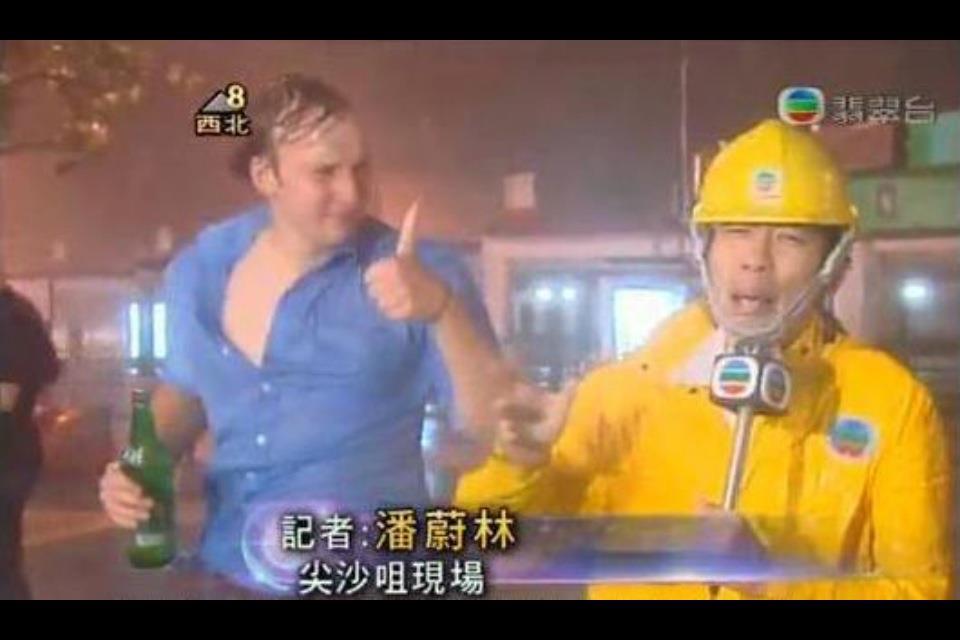
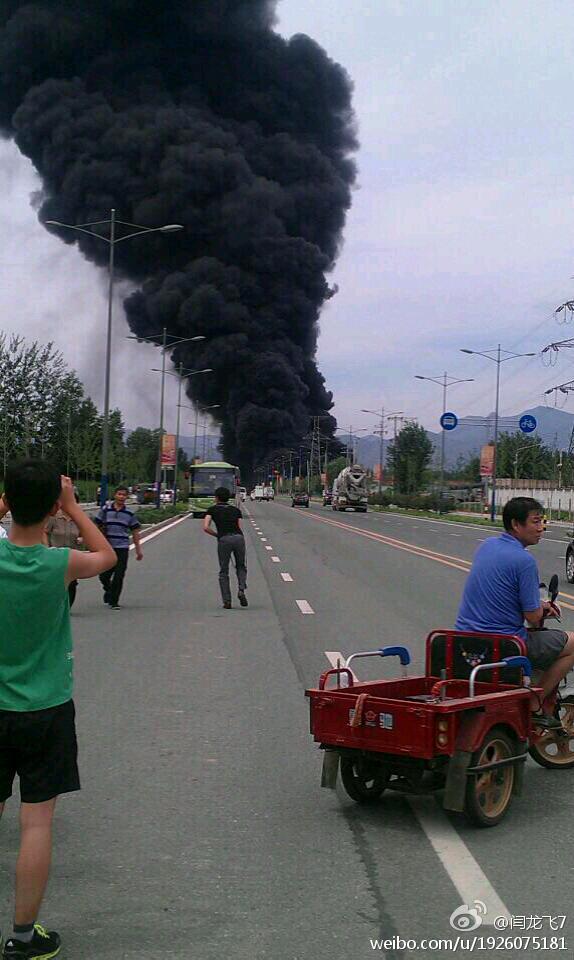
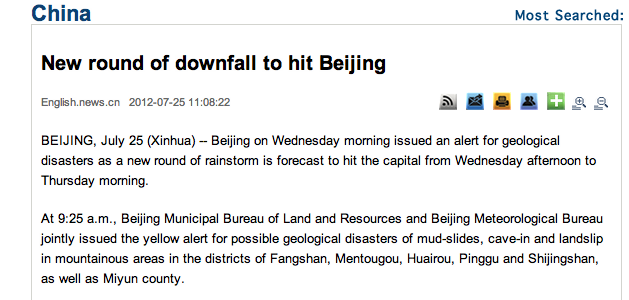
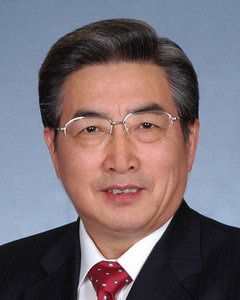
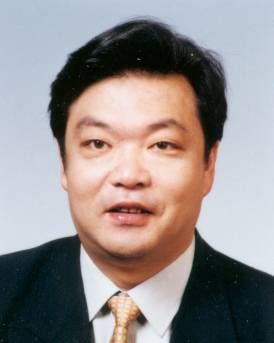
Comments